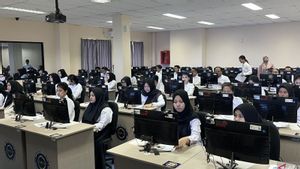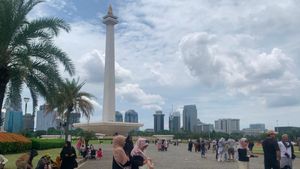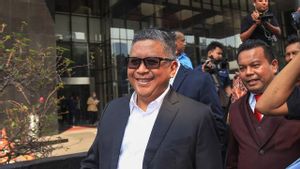SUMBAR - At least 7.51 percent or the equivalent of more than 32 thousand residents of West Pasaman Regency, West Sumatra (West Sumatra) still live in poverty.
The Deputy Regent of West Pasaman, Risnawanto, said that his party continues to try to reduce poverty in the area.
"The poverty rate in our area is still high, reaching 7.52 percent and efforts will be made to reduce it to 6.58 percent in 2026," said Risnawanto at Simpang Empat, West Sumatra, Wednesday, August 10.
He said reducing poverty is one of the priorities for development achievements to encourage growth and equitable development.
In following up on these efforts, the West Pasaman Regency Government through the Regional Development Planning Agency (Bappeda) for the Socio-Cultural Sector and related parties held a regional poverty reduction Coordination Meeting (Rakor) on Tuesday 9 August.
To reduce the poverty rate, he said, strategic steps and synergy across existing Regional Apparatus Organizations (OPD) were needed.
"This is our joint task. Since Indonesia's independence, poverty is still a problem. We must work together and focus on resolving and reducing poverty in West Pasaman until we can achieve the target. How to increase data synergy for all OPDs," he said, quoted by Antara.
He asked for the understanding of all regional apparatus organizations to jointly carry out the program to the community directly.
Poverty, he said, is the main factor that is related to other factors such as education and health.
For this reason, he hopes that the West Pasaman regional poverty reduction coordination team will try and work optimally in an effort to reduce the poverty rate in West Pasaman to 6.58 percent.
Among the efforts made, such as economic recovery after the COVID-19 pandemic. Empowerment of Micro, Small and Medium Enterprises (MSMEs) is again carried out so that business actors can get back up.
"Around 380 MSMEs were affected by the earthquake in February. 100 MSMEs will receive capital assistance from the Ministry of Cooperatives and SMEs and the rest are proposed to obtain the Micro Business Productive Banpres (BPUM) program," he said.
In addition, various infrastructure and health developments continue to be encouraged so that the problem of poverty can be slowly suppressed.
"If the poverty rate is high, then all will be affected. The level of education will be low, and the [regional] poverty rate will automatically explain the health side," he said.
The English, Chinese, Japanese, Arabic, and French versions are automatically generated by the AI. So there may still be inaccuracies in translating, please always see Indonesian as our main language. (system supported by DigitalSiber.id)










